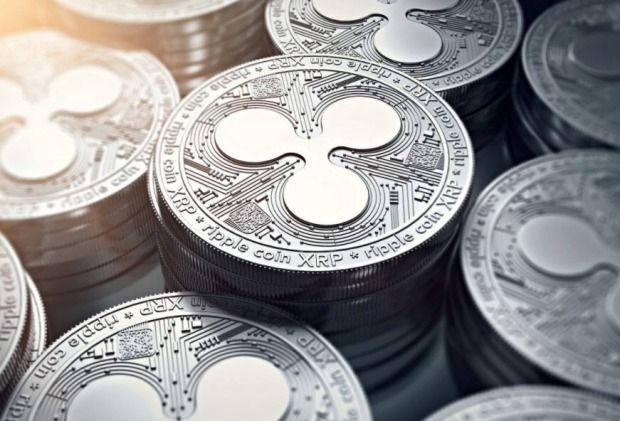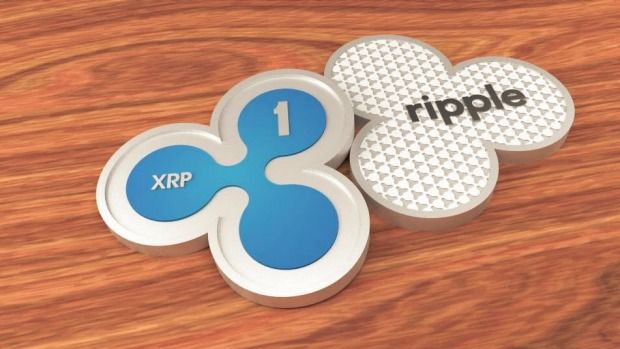In the middle of the Bitcoin bubble
It's been almost a month since Wall Street took a step toward adopting Bitcoin as its own with the launch of cash-settled futures contracts. The results haven't been stellar.
Promoted as "Gold 2.0," Bitcoin hasn't quite worked out that way: Its price in dollars has fallen by about 20 per cent from a mid-December high, while its volatility has climbed to its highest in two years. Bitcoin may be part of the financial firmament, as one hedge-fund manager put it, but it's still wildly unpredictable.
Meanwhile, attention has shifted to a Bitcoin competitor that is sucking up a lot of the trading oxygen in the room: Ripple. The price of this digital token has risen 240 per cent over the past month. Never mind that in absolute terms this marks an increase from about 70¢ to $US2.40, or the price of a cup of coffee.
The pie-in-the-sky math of cryptocurrency market capitalisation means that the circulating supply of Ripple, combined with an extra pile locked up in its treasury, has made its chairman a top global billionaire on paper. Much back-slapping and industry enthusiasm has ensued amid boasts that the cryptocurrency leader-board is being disrupted.
Ripple's distributed-ledger technology moves payments between banks, and it has promoted itself as a friend of regulators. Ripple Coin News
A charitable explanation might be that, as regulators face added pressure to respond to the global crypto-frenzy, the world has suddenly woken up to the potential of teachers' pets like Ripple over anti-bank rebels like Bitcoin.
Ripple's distributed-ledger technology moves payments between banks, and it has promoted itself as a friend of regulators. The Bank of England could be found tinkering with it last year, politely calling it "useful" - but not yet mature enough to replace its current interbank payments system.
Bank-friendly blockchains look more like hopeful experiments than products ready for real adoption. But for some crypto fans these experiments by regulators may be endorsement enough.
A less charitable view would suggest this looks more like another moment of speculative madness in a market that's dominated by individual investors, not institutions.
Ripple has been around for five years, and has traded at for pennies for much of them. As recently as May 2017, one Ripple was worth 10¢. The recent price gains were accompanied by word-of-mouth tips and social-media rumours that more exchanges would be adding Ripple soon (this kind of thing usually boosts a token).
The pie-in-the-sky math of cryptocurrency market capitalisation means that the circulating supply of Ripple, combined with an extra pile locked up in its treasury, has made its chairman a top global billionaire on paper. Ripple.com
When Coinbase effectively quashed those rumours, Ripple sank - it is down by around a quarter from its January 4 high. If the signal is that Ripple's corporate-friendly, centralised model has further to go than that of Bitcoin, it's been drowned out by noise.
If Bitcoin and its ilk are indeed the greatest bubble of our lifetimes, we seem to be somewhere in between euphoria and profit-taking. The smart money is diversifying out of Bitcoin, having made life-changing gains in a digital asset that is proving too costly and clunky to gain real-world traction. That should keep benefiting other sprightlier crypto-currencies, along with the fact that those who feel they missed out on Bitcoin are hunting for ways to get ten-fold returns.
Ripple is enjoying its moment in the sun, but the hype can fade as quickly as it arrives: In 2013, the list of top rivals to Bitcoin's crown included Namecoin, Peercoin and Feathercoin. Yeah, me neither.
So even if Bitcoin is stumbling, it would be a stretch to say the party is over. It would take a serious piece of bad news - and a coordinated regulatory response - for this bubble to enter the panic stage. Price weakness across the board on Monday suggests some unpredictability ahead. Expect more volatility in 2018.

